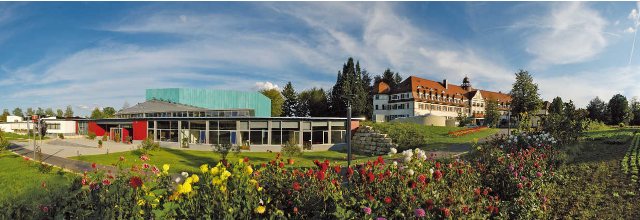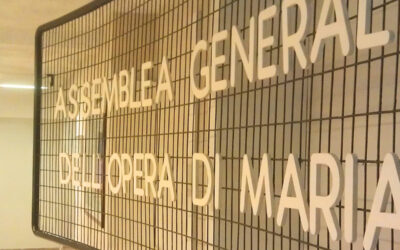150 heads of evangelical movements and free churches, within the multi-faceted reality of the evangelical world, and with representatives of Catholic movements, posed the query: how to remain faithful to one’s own charism in times of great change?
It is the situation of how various movements that arose over the last century can face the situations today and how they can respond to the various challenges facing Christian ideals, and their searching for new answers, adapted to the times we are living in, though remaining faithful to their roots.
At the “Leaders Convention” Gerhard Pross, moderator and one of the more renowned figures of Together for Europe (network of Christian movements that work together for the benefit of the European continent) and who wanted Focolare President, Chiara Lubich, to be present, as the first successor of Chiara Lubich and as the leader of the Movement.
Maria Voce’s reflection helped to understand the difference between the foundation phases and the “charismatic period,” “full of new, dynamic, luminous surprises,” and the phase of maturity, the “period of creative faithfulness” of a movement, in which, to “grow, develop and multiply” with originality, the inspirational ideas and established by the founder. She went on to recount the Focolare’s commitment to live a widespread leading role of those who live the spirituality and share its aims, and above all, to “go out” more in the “various environments of life and society,” without limiting themselves to living and testifying to unity within the movement, but bringing the spirit and experience of unity to the entire world, “so that all may be one” (John 17.21), the specific aim of the Focolare. “We cannot therefore think of ourselves, Maria Voce affirmed, “we have to “go out” and give of ourselves.” To be able to go beyond ourselves, we need to choose Jesus Forsaken who in his abandonment went beyond himself to unite man once again with God, and unity is one of the main points of the spirituality of unity.
There were members of the evangelical Church, Pentecostal and charismatic movements,
each of which are involved in different way or in social works or on the front of evangelisation, education, political commitment. The “Leaders’ Convention” was created in 1974, well before John Paul II launched in 1998 the communion between movements within the Catholic Church This experience of sharing has therefore continued for some years now. A significant moment which all remembered was in 2000, when with Chiara Lubich at Rothenburg a step forward towards reconciliation was made. In fact the long standing misunderstandings that had developed along the years were cleared up during the “historic moment of mutual forgiveness,” Maria Voce recalled, and which became «a founding experience for communion between movements and communities of different Churches, which later came up with the project “Together for Europe.”
A common step which all look to is the Munich 2016 event, when the “Together for Europe” network will meet for a congress and public manifestation, and will be in turn a step towards the 500th anniversary of Luther’s Reform, offering itself as a prophetic sign of a reconciled and united Europe. On her return from Germany on 4 March, Maria Voce participated in the audience with Pope Francis together with the Bishop-Friends of the Focolare, and conveyed to him the greetings of the 150 representatives of the evangelical movements and their hope in the common commitment for unity. “Very well,” Pope Francis said, when he thanked them. «Your work on the ecumenical front is very important».





0 Comments